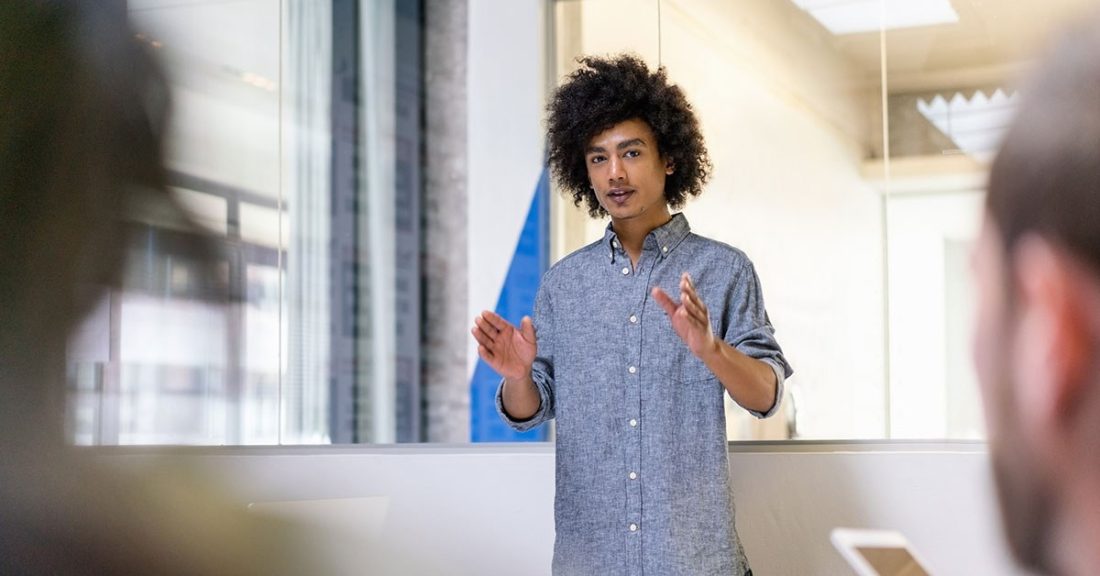Casey Awards Grants to Juvenile Justice Reform Projects Led by Young People

The Annie E. Casey Foundation announced funding for three juvenile justice reform projects led by youth and young adults who have personal experience with the justice system. Seeking to elevate the voices and leadership potential of these young people, the Foundation issued a request for proposals with the help of alumni from Casey’s Juvenile Justice Youth Advisory Council.
The three grantees are the Center for Justice-Impacted Students at Middlesex College in New Jersey, the Legal Aid Society in New York City and the Final 5 Campaign in Illinois. They were selected from a pool of 64 proposals by council alumni, Foundation staff and others. Each will receive a $50,000 grant.
“We received a strong response to the request for proposals, many of which were quite good,” says David E. Brown, senior associate with the Foundation’s Juvenile Justice Strategy Group. “The grantees we chose demonstrated the highest level of youth engagement and leadership by youth affected by the juvenile justice system.”
The Casey Foundation’s Juvenile Justice Reform Grantees
The Foundation funded the following projects:
- Collaborative Exchange: Envisioning a New Higher Educational Pathway Designed for and by Justice-Impacted Youth — Center for Justice-Impacted Students, Middlesex College, Edison, New Jersey. Access to higher education has proven benefits for youth in custody and the communities to which they eventually return. To ensure that higher education remains a priority for young people with justice system involvement, the Middlesex College Collaborative Exchange provides intensive support to two groups of young people — formerly incarcerated and currently in custody — who are attending college. They learn to advocate for themselves and similarly situated young people by researching resources for — and barriers to — higher education for people with records. The Casey grant will be used to compensate participants for their time, labor and expertise, as well as funding honoraria for guest speakers and enrichment programming identified and designed by the youth leaders. The project will culminate in a meeting with the New Jersey Juvenile Justice Commission and state-level representatives, where the young leaders will present their findings and offer concrete suggestions to support the reentry needs and academic interests of students with justice system involvement.
- The Youth Leadership Board’s Set the Record Straight Peer Outreach Campaign — The Legal Aid Society, New York, New York. This project is led by the society’s Youth Leadership Board (YLB) — a diverse group of current and former clients aged 16–24 who have been involved with the juvenile justice and child welfare systems. It will use peer outreach so young people understand their rights, the consequences of a criminal or juvenile record and how to mitigate a record’s impact on their lives. The project targets young people at risk of involvement and those who have already had contact with the justice system. It promotes Legal Aid’s services to resolve errors in juvenile arrest histories and ensure that arrest records for juvenile delinquency are treated confidentially. Moreover, it prevents young people with juvenile arrest records from experiencing unlawful discrimination by employers, schools and law enforcement agencies. Members of YLB, who will be paid for their work, will gain professional and personal skills as they develop and execute the youth outreach campaign. The society expects the campaign will include PSA-style videos, written materials and in-person events.
- Restorative Pathways to Youth Futures — The Final 5 Campaign, Illinois. A movement to close the state’s five youth prisons and increase community-based investments in positive opportunities for young people, the Final 5 Campaign draws attention to the experiences of youth who have been incarcerated to generate public support for its mission. Restorative Pathways to Youth Futures will engage both youths who are currently in custody and those who were formerly incarcerated in developing initiatives that offer resources, peer support and leadership development opportunities for young people across the state who have been incarcerated. The participating young people will simultaneously push for changes in practice and policy while supporting directly affected individuals and communities. They will determine project activities, which might include community events to engage and support youth and families, trainings or workshops and paid internships and fellowships. The young people will use their experiences to develop recommendations for enduring solutions.
Proposal Design Informed by Youth Council Members
Derrell Frazier, Iliana Pujols and Inesha Briggs — alumni of Casey’s Juvenile Justice Youth Advisory Council — played a leading role in the initial request for proposals and the selection of these three projects. “Young people who have experience with the juvenile justice system have a unique and valuable perspective to contribute to reform efforts,” says Frazier. “Centering authentic youth voice and leadership in these efforts is essential to providing young people with the opportunity to shape their lives and communities.” A fellow alumnus of Casey’s youth advisory council — Ja’Vaune “Jay” Jackson — is one of the leaders of the Final 5 Campaign.
Restorative Response Baltimore (RRB), a conflict resolution and community-building organization that is a Casey Foundation grantee, helped to manage the RFP and selection process. RRB was the youth advisory council’s backbone organization and continues to work with Casey and council alumni on projects fostering authentic youth engagement.






